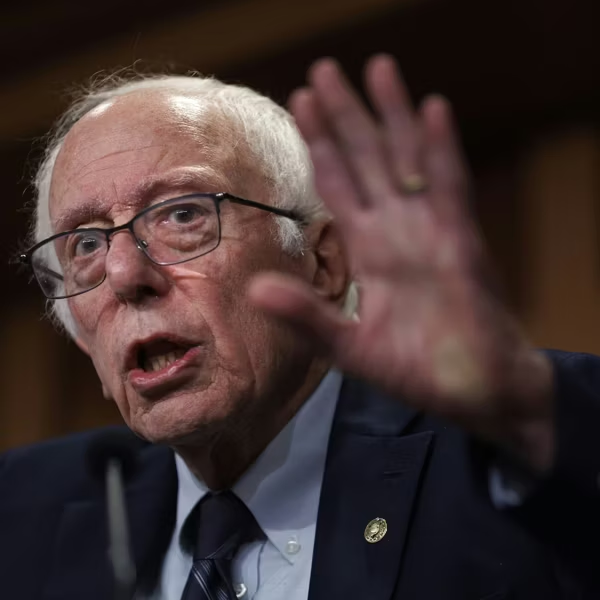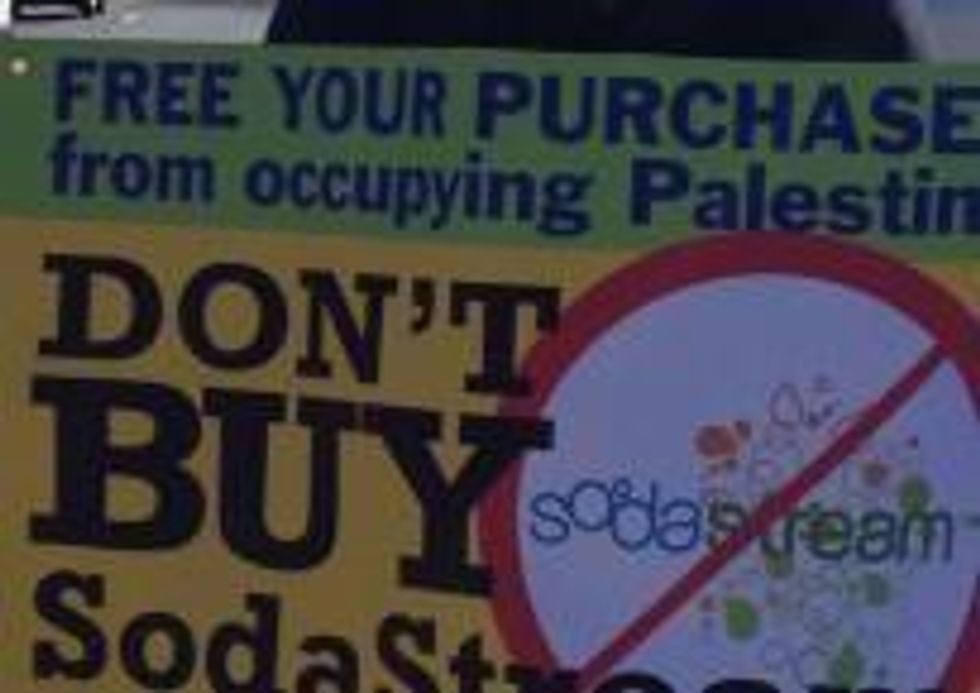I've heard this already a couple times on my book tour: "Hey, we shouldn't boycott settlement goods. It'll hurt job prospects for Palestinians!"
To me this sounds exactly like a white Afrikaaner saying, "Hey, if you try to end Apartheid, it'll hurt the black people we're kind enough to allow to leave their Bantustans occasionally and work for us at whatever wages we deem appropriate! (It's not like they have any other prosepects... for some strange reason...)"
An excellent article in the Electronic Intifada picked up this theme and thoroughly demolished this ridiculous argument.
One example they use is a video made by the Israeli company SodaStream, whose main manufacturing facilities are located in an illegal settlements in the West Bank.
The video includes footage of Palestinian workers at the factory, the luxury coach that apparently takes them from their villages to the settlement, the factory "mosque," and Sodastream chief executive Daniel Birnbaum patting workers on the shoulders and explaining that SodaStream "builds bridges, not walls."
Responding to the video, the Palestinian Christian organization Kairos Palestine described the vision of reality presented as "cynical at best; at worst, it is criminally misleading." The letter from Kairos Palestine went on the say "the emphasis on SodaStream's economic benefits for its workers is, under the circumstances of occupation, absurd and offensive: what Palestinians need is freedom, not fancier oppression. It doesn't matter if our cage is made of iron or gold: it is a cage."
In Apartheid South Africa as well, companies that were complicit with the regime tried to adopt a "code of ethics" for continuing to engage with Apartheid:
Several large US companies, including Ford, General Motors, IBM and Union Carbide, signed on immediately, with other companies added later bringing the total to more than 130 endorsers. Ronald Reagan, a strong ally of the regime in South Africa, also supported the Sullivan Principles as part of his "constructive engagement" policy.
A public statement published in 1979 and signed by some 60 religious leaders, trade unions, academics and human rights organizations called into question the true effects of Sullivan's code of ethics. Titled "The Sullivan Principles: No Cure for Apartheid," the statement argued that the Sullivan Principles had "developed rapidly into a major defense of US business activity in South Africa" and were being used to undermine divestment campaigns.
The signatories of the statement argued that firms tended to endorse the Sullivan Principles "not as a result of genuine change in corporate attitudes but as a public relations effort," providing "precisely what the companies were looking for: a guaranteed public relations success which promised maximum credit for minimum change." The reforms proposed by the code, which were voluntary and provided no means for enforcement, were confined to the workplace and raised no objections to the system of apartheid that was the source of injustice in South Africa. "Africans are not struggling and dying to reform apartheid," the statement added. "They want nothing less than the abolition of the system."
Ten years later, Sullivan [the original creator of the "code of ethics"] abandoned his principles, disappointed that they had not had the expected impact. Sullivan instead called on companies to withdraw completely from all business activities in South Africa and on the US government to impose sanctions...
SodaStream, along with other supporters of oppression, occupation and apartheid, are using Palestinian workers in an attempt to give legitimacy to an unjust system, reinforcing the idea that Palestinians should make do with a job, rather than fight for every right they are due.
Next time someone suggests that taking steps to end the occupation -- steps requested by the Palestinians themselves -- will hurt Palestinians, be sure to remind them of these realities.
Or just say what I tend to say: "Hey, you know what hurts job prospects for Palestinians? A neverending military occupation that denies them basic human rights, including the right to develop their own economy."


